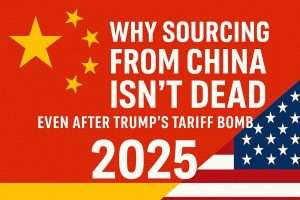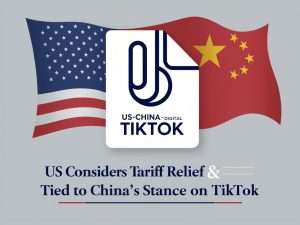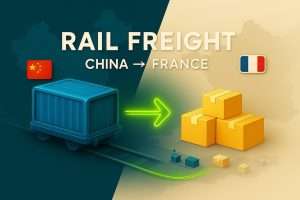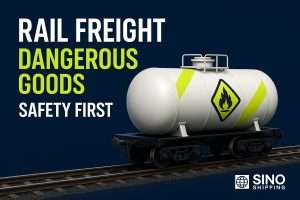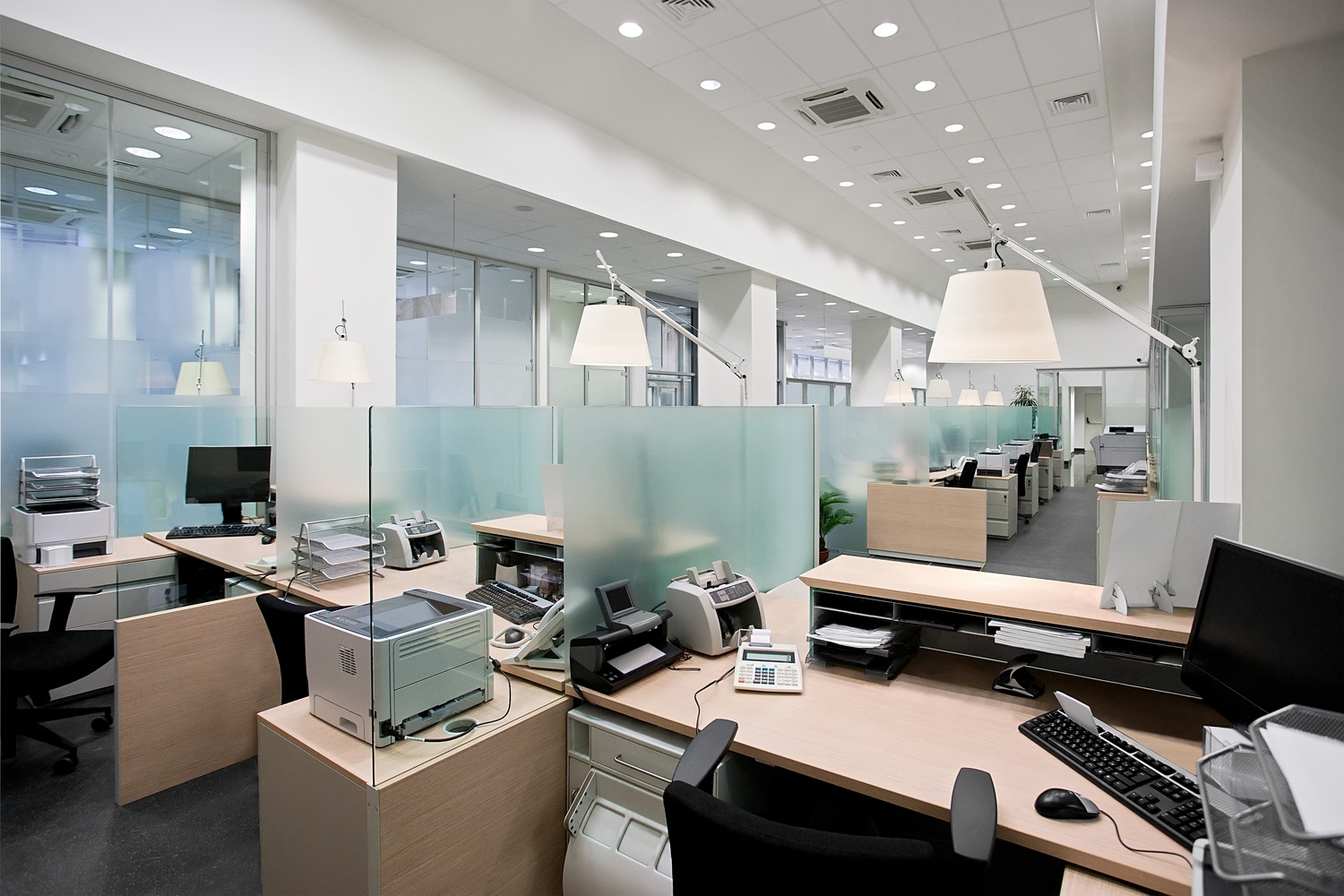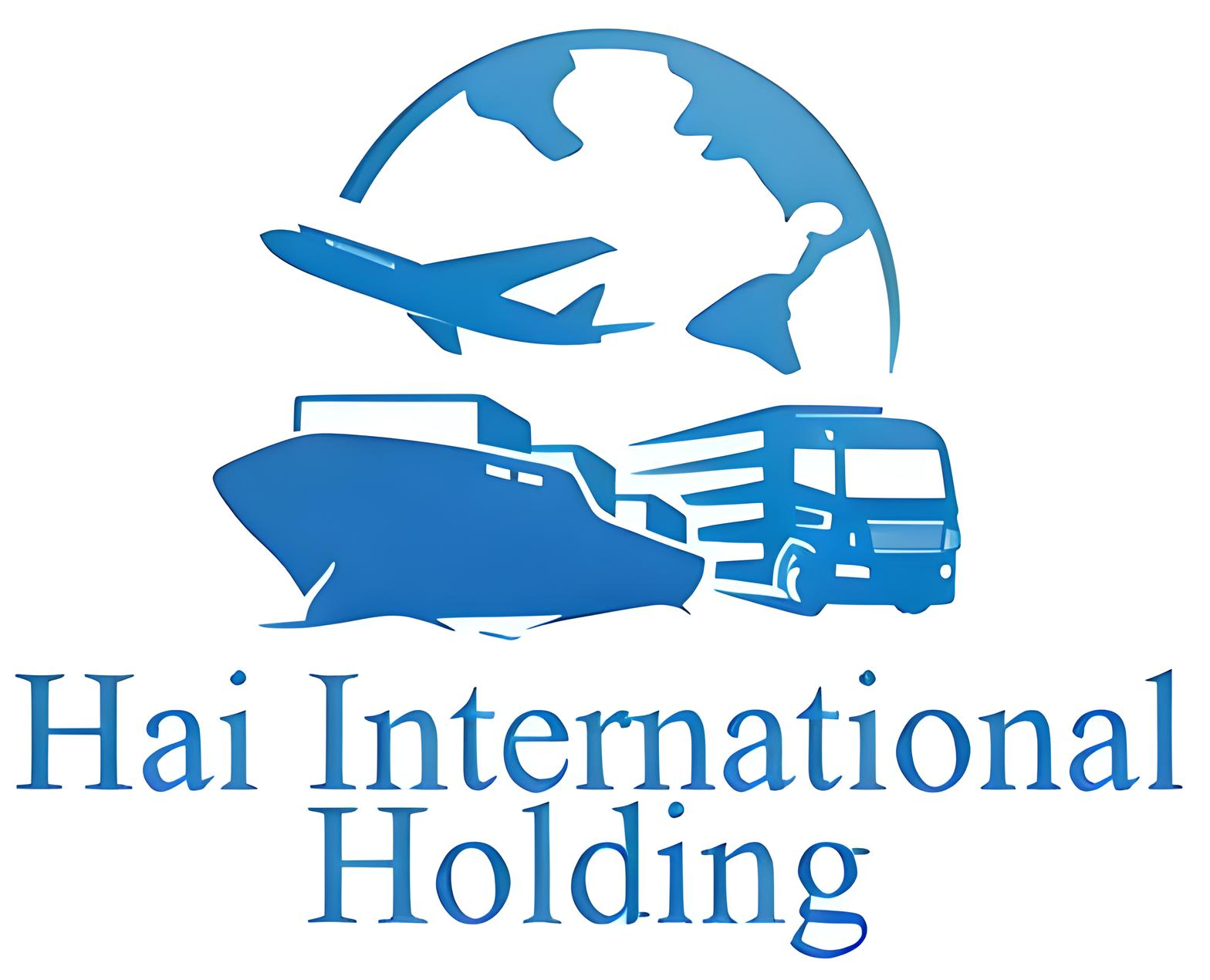China dominates the global T-shirt manufacturing and wholesale market, offering high-quality fabrics, competitive pricing, and extensive customization options. Whether you’re looking to buy in bulk or start a dropshipping business, sourcing T-shirts from China provides cost-effective solutions with flexible production capabilities.
There are two main ways to source T-shirts from China:
✅ Wholesale (bulk orders) – Ideal for brands, retailers, and businesses looking for low-cost, high-margin products with full customization.
✅ Dropshipping (low-risk model) – A perfect solution for entrepreneurs who want to sell T-shirts without holding inventory while leveraging print-on-demand services.
📌 This guide will help you find the best T-shirt suppliers in China, compare pricing, and choose the right sourcing method for your business. Whether you’re a wholesaler, private label brand, or eCommerce seller, this guide provides the insights you need to maximize profits and streamline your sourcing process.
🔍 Why Source T-Shirts from China?
Sourcing T-shirts from China offers strategic advantages for businesses looking for affordable, high-quality, and customizable apparel. As the world’s largest textile producer, China has a well-established supply chain, advanced manufacturing technologies, and highly competitive pricing. Here’s why China remains the best choice for T-shirt sourcing:
💰 Advantage: Price Comparison with Other Countries
China offers some of the most competitive prices in the global textile market due to economies of scale, access to raw materials, and efficient production processes. Compared to other major T-shirt manufacturing countries:
| Country | Average Wholesale Price (per unit) | MOQ (Minimum Order Quantity) | Customization Options |
|---|---|---|---|
| 🇨🇳 China | $1.50 – $3.00 (basic cotton T-shirts) | 100 – 500 pcs | ✅ High (Screen printing, DTG, embroidery, sublimation) |
| 🇻🇳 Vietnam | $2.00 – $3.50 | 300 – 1,000 pcs | ✅ Medium |
| 🇧🇩 Bangladesh | $1.20 – $2.50 | 1,000 – 3,000 pcs | ⚠️ Low |
| 🇮🇳 India | $1.80 – $3.20 | 500 – 1,500 pcs | ✅ Medium |
📌 Fact: According to the China National Textile and Apparel Council (CNTAC), China’s total textile and apparel exports reached $293.6 billion in 2023, despite an 8.1% decrease from the previous year.
🏭 Mass Production Capacity: Large-Scale, Low-Cost Manufacturing
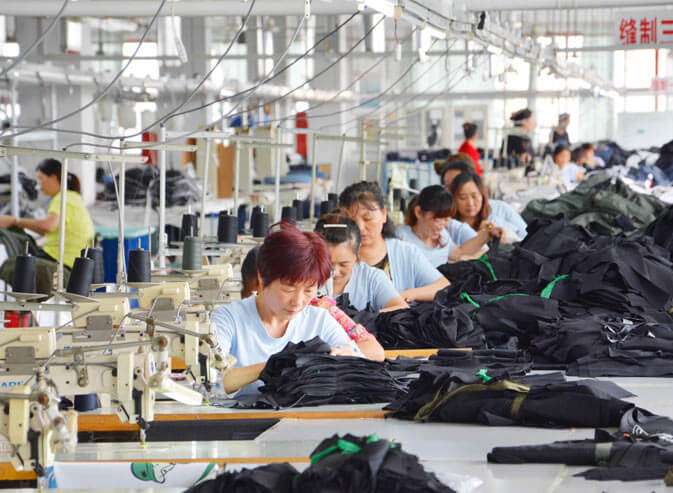
China’s textile industry is built for mass production, making it ideal for brands requiring bulk orders at low unit costs. The country offers:
- Thousands of factories with automated production lines.
- Advanced logistics for fast global shipping.
- Integrated supply chains that reduce delays and costs.
📌 Fact: In 2023, the total profits of China’s major textile companies increased by 7.2% year-on-year, reaching 180.2 billion yuan (about $25.38 billion), according to the Ministry of Industry and Information Technology.
🎨 Customization Options: Private Label & Printing Techniques
Chinese manufacturers offer extensive customization for T-shirts, including:
✅ Screen Printing – Best for bulk orders (cost-effective, durable).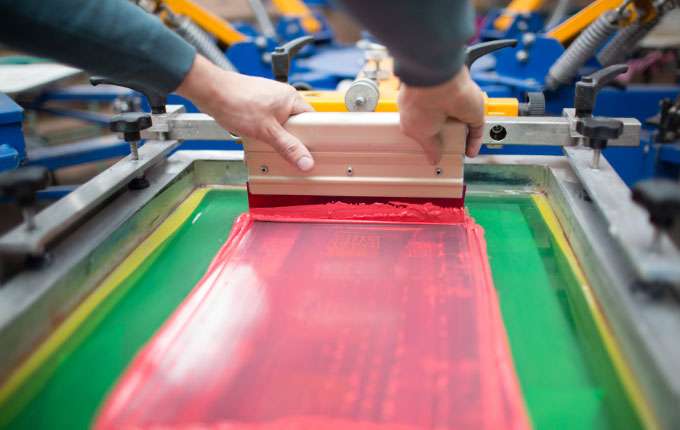
✅ Direct-to-Garment (DTG) Printing – Ideal for dropshipping & print-on-demand (POD).
✅ Embroidery – High-end branding for premium T-shirts.
✅ Sublimation Printing – Great for all-over prints and sportswear.
✅ Heat Transfer & Vinyl Printing – Affordable option for custom logos.
📌 Fact: Many factories offer OEM (Original Equipment Manufacturer) and ODM (Original Design Manufacturer) services, allowing custom branding, labeling, and packaging.
🌱 Eco-Friendly Manufacturing: Sustainable & Certified Production
With increasing demand for sustainable fashion, many Chinese suppliers now offer organic cotton, recycled polyester, and water-based printing. The best manufacturers hold:
- Oeko-Tex Standard 100 – Ensures fabric is free from harmful substances.
- GOTS (Global Organic Textile Standard) – Certifies organic cotton compliance.
- BSCI (Business Social Compliance Initiative) – Verifies ethical labor practices.

📌 Fact: As of 2022, over 13,500 companies worldwide were GOTS-certified, with 1,775 located in China, highlighting the country’s commitment to sustainable manufacturing.
🏆 Best T-Shirt Manufacturers & Wholesale Suppliers in China
Sourcing T-shirts from China provides access to a vast network of manufacturers and suppliers, each offering unique advantages. Understanding key manufacturing hubs, the scale of manufacturers, sourcing platforms, trade fairs, and the role of sourcing agents can significantly enhance your procurement strategy. At HAI International Holding, we provide end-to-end sourcing services and on-site assistance in Yiwu and Canton, ensuring that our clients secure the best deals, suppliers, and logistics solutions.
Top Manufacturing Hubs 📍: Guangzhou, Shenzhen, Yiwu
China’s prominent manufacturing hubs for T-shirts include:
- Guangzhou: Known for its extensive textile industry, offering a wide range of apparel manufacturers.
- Shenzhen: Renowned for modern factories specializing in high-quality garments and innovative designs.
- Yiwu: Hosts one of the largest wholesale markets, providing diverse T-shirt options at competitive prices.
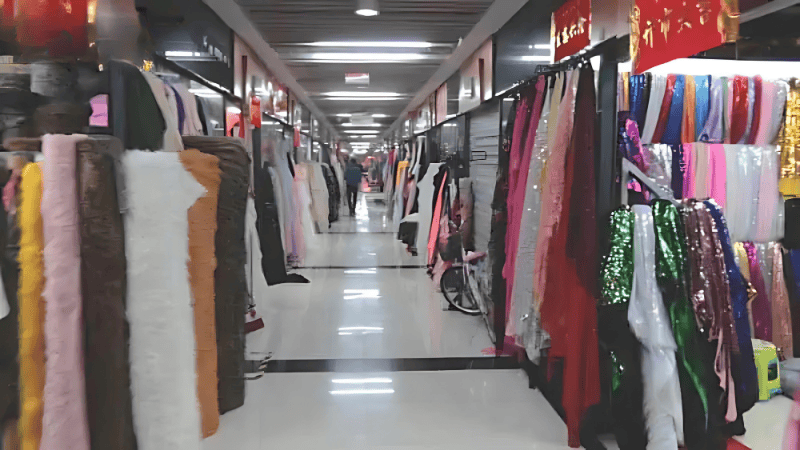
At HAI International Holding, we offer accompaniment services in Yiwu and Canton, guiding businesses through supplier selection, negotiations, and logistics management to maximize efficiency and profitability.
Large vs. Small-Scale Manufacturers – Choosing Based on Your Business Needs
Selecting the right manufacturer depends on your business requirements:
- Large-Scale Manufacturers: Ideal for substantial orders, these manufacturers offer high production capacities and advanced facilities.
- Small-Scale Manufacturers: Suitable for smaller orders or niche products, they provide flexibility and personalized services.
💡 Need help finding the right manufacturer? Our Yiwu & Canton Fair sourcing services help businesses identify the best T-shirt factories based on their budget, quality requirements, and branding needs.
Where to Find Suppliers?
Alibaba.com vs. 1688.com – Which Platform Is Best for You?
 Both platforms are owned by the Alibaba Group but cater to different audiences:
Both platforms are owned by the Alibaba Group but cater to different audiences:
- Alibaba.com: Designed for international buyers, offering English language support, various payment methods, and buyer protection services.
- 1688.com: Primarily serves the domestic Chinese market, featuring lower prices but requires proficiency in Chinese and understanding of local payment systems.
💡 Want better deals on 1688? At HAI International Holding, our sourcing agents help clients navigate 1688 suppliers, negotiate lower MOQs and prices, and handle all transactions smoothly.
🎪 Canton Fair & Yiwu Market – Sourcing Directly from Trade Fairs
Attending trade fairs provides direct access to manufacturers, allowing for face-to-face negotiations and quality inspections:
- Canton Fair: China’s largest trade fair, featuring thousands of suppliers in the apparel industry, including T-shirt manufacturers offering bulk and private-label options.
- Yiwu Market: One of the world’s largest wholesale markets, ideal for finding affordable T-shirts, testing new designs, and networking with multiple suppliers.
✅ HAI International Holding’s Accompaniment Services for Yiwu & Canton:
We provide on-the-ground support for businesses attending these trade fairs, including:
- Pre-trip planning: Shortlisting suppliers based on your needs.
- Real-time translation & negotiation assistance.
- Factory visits & quality inspections.
- Logistics coordination & order consolidation.
Using a Sourcing Agent – Ensuring Better Quality, Pricing, and Logistics
Engaging a sourcing agent can streamline the procurement process:
- Quality Assurance: Agents conduct factory audits and oversee production to ensure product standards.
- Negotiation: Leverage local expertise to secure favorable pricing and terms.
- Logistics Management: Coordinate shipping and handle customs documentation, reducing potential delays.
Incorporating these strategies into your sourcing approach can lead to more efficient procurement and better alignment with your business objectives.
📌 Need help sourcing T-shirts from China? Contact HAI International Holding for a custom sourcing solution tailored to your business needs! 🚀
💲 Understanding T-Shirt Pricing in China
Sourcing T-shirts from China offers competitive pricing, influenced by various factors such as material quality, order quantity, and customization options. Here’s a detailed breakdown:
Average Wholesale T-Shirt Prices
- Basic Cotton T-Shirts: Approximately $2.60 per piece.
- Premium Cotton T-Shirts: Typically range from $3.50 to $6.00 per piece, depending on fabric quality and craftsmanship.
- Custom Printed T-Shirts: Prices vary based on the complexity of designs and printing techniques, generally between $4.00 to $10.00 per piece.
Key Pricing Factors
- Minimum Order Quantity (MOQ): Larger orders often result in lower unit prices. Chinese manufacturers may offer flexible MOQs, but higher quantities typically secure better rates.
- Fabric Type:
- Cotton: Standard material with varying grades affecting price.
- Polyester: Usually more affordable than cotton.
- Organic/Recycled Fabrics: Eco-friendly options that may come at a premium.
- Printing & Branding Options:
- Screen Printing: Cost-effective for bulk orders.
- Embroidery: Adds to the cost due to its intricate process.
- Direct-to-Garment (DTG) Printing: Suitable for detailed designs but can be pricier.
💡 Tips for Negotiating Better Prices
- Increase Order Size: Larger orders can lead to discounts.
- Simplify Designs: Reducing complexity in prints or embroidery can lower costs.
- Choose Cost-Effective Fabrics: Opting for standard materials can be more economical.
- Build Long-Term Relationships: Establishing trust with suppliers may result in better pricing over time.
By understanding these factors and strategies, businesses can effectively manage costs when sourcing T-shirts from China.
👕 Types of T-Shirts Available for Wholesale
China’s extensive textile industry offers a diverse range of T-shirts suitable for various markets and consumer preferences. Here’s an overview of the primary types available for wholesale:
1. Basic Cotton T-Shirts
Description: Simple, comfortable T-shirts ideal for everyday wear and promotional purposes.
- Materials: Typically made from 100% cotton or cotton-polyester blends.
- Features: Soft texture, breathable, and suitable for casual settings.
- Use Cases: Uniforms, promotional giveaways, casual retail offerings.
Example: Many Chinese manufacturers produce high-quality basic cotton T-shirts suitable for various applications.
 2. Premium Fashion T-Shirts
2. Premium Fashion T-Shirts
Description: High-end T-shirts designed with fashion-forward elements, often utilizing superior fabrics and trendy cuts.
- Materials: Organic cotton, bamboo fibers, or luxury blends.
- Features: Tailored fits, unique designs, and enhanced durability.
- Use Cases: Boutique fashion lines, streetwear brands, eco-conscious retailers.
Example: Manufacturers like Sichuan Eco Garments Co., Ltd. specialize in eco-friendly apparel, including premium fashion T-shirts made from organic materials.
3. Custom Printed & Private Label T-Shirts
Description: T-shirts customized with specific designs, logos, or branding elements, catering to businesses seeking unique products.
- Customization Methods:
- Screen Printing: Ideal for bulk orders with simple designs.
- Direct-to-Garment (DTG) Printing: Suitable for intricate, multi-color designs.
- Embroidery: Provides a textured, upscale look for logos and branding.
- Use Cases: Merchandise for events, corporate branding, fashion labels.
Example: Platforms like Made-in-China.com connect buyers with suppliers offering extensive customization options for T-shirts.
4. Sports & Performance T-Shirts
Description: T-shirts engineered for athletic activities, emphasizing functionality and comfort.
- Materials: Moisture-wicking fabrics such as polyester or specialized blends.
- Features: Breathability, quick-dry properties, flexibility, and durability.
- Use Cases: Sports teams, fitness apparel brands, outdoor activity retailers.
Example: Chinese suppliers offer a variety of sports T-shirts designed for performance and comfort, suitable for wholesale buyers.
By exploring these categories, businesses can identify the T-shirt types that align with their target markets and brand positioning.
📦 Dropshipping T-Shirts from China: How It Works & Best Suppliers
Dropshipping T-shirts from China offers entrepreneurs a low-risk, scalable business model with access to a vast array of products and customization options. Here’s a comprehensive guide to understanding the process, benefits, top suppliers, and strategies for success.
What is T-Shirt Dropshipping?
T-shirt dropshipping is a retail fulfillment method where store owners sell T-shirts without holding physical inventory. Instead, when a customer places an order, the retailer forwards the order details to a third-party supplier, who then ships the product directly to the customer. This model offers several advantages:
- No Inventory Needed: Eliminates the need for upfront inventory investment and storage.
- Low-Risk, Scalable Business Model: Allows testing new designs and markets without significant financial commitments.
- Private Label Options Available: Many suppliers offer print-on-demand (POD) services, enabling custom branding and designs.

Why Dropship T-Shirts from China?
China stands out as a premier source for dropshipping T-shirts due to several compelling reasons:
- Low Production Costs → High Profit Margins: China’s manufacturing efficiency and economies of scale result in competitive pricing, allowing retailers to achieve better profit margins.
- Wide Variety of Designs: Suppliers offer an extensive range of T-shirt styles, including streetwear, sportswear, luxury, and eco-friendly options.
- Access to Print-on-Demand (POD) Services: Platforms like Printful and Printify integrate seamlessly with Chinese suppliers, facilitating custom designs without holding inventory.
- Easy Integration: Chinese suppliers often provide integrations with popular e-commerce platforms such as Shopify, WooCommerce, and TikTok Shop, streamlining the selling process.
Best Dropshipping T-Shirt Suppliers in China
Selecting the right supplier is crucial for success. Here are some top options:
- Alibaba: A vast marketplace with numerous suppliers offering dropshipping services. It’s essential to verify suppliers’ credibility and ensure they support dropshipping.
- CJ Dropshipping: Specializes in dropshipping services with integration capabilities for platforms like Shopify and WooCommerce. They offer a wide range of products, including T-shirts.
- Printful & Printify: While not based in China, these POD platforms have partnerships with Chinese manufacturers, enabling high-quality custom T-shirt printing and global fulfillment.
- 1688 & Taobao: Chinese marketplaces offering competitive prices. However, they primarily cater to the domestic market, so working with a local sourcing agent is advisable to navigate language barriers and payment methods.
How to Start a T-Shirt Dropshipping Business
Embarking on a T-shirt dropshipping venture involves several key steps:
- Find a Profitable Niche: Identify specific markets such as streetwear, sports apparel, or eco-friendly T-shirts to target a dedicated customer base.
- Select a Reliable Supplier with Fast Shipping: Partner with suppliers known for quality products and prompt delivery to ensure customer satisfaction.
- Set Up an Online Store: Utilize platforms like Shopify or WooCommerce to create a user-friendly e-commerce site showcasing your T-shirt designs.
- Test Designs & Launch Marketing Campaigns: Implement SEO strategies, and run targeted Facebook and TikTok ads to attract and engage potential customers.
Challenges & How to Overcome Them
While dropshipping offers numerous benefits, it’s essential to address potential challenges:
- Slow Shipping: Mitigate delays by partnering with suppliers that offer expedited shipping options or by utilizing fulfillment centers closer to your target market.
- Quality Issues: Order samples before listing products to assess quality and ensure they meet your brand’s standards.
- Branding Limitations: Opt for private label dropshipping services that allow custom packaging and labeling to strengthen brand identity.
By understanding the intricacies of T-shirt dropshipping from China and implementing strategic practices, entrepreneurs can build successful, scalable businesses in the competitive e-commerce landscape.
🚢 How to Import T-Shirts from China: A Comprehensive Guide
Importing T-shirts from China can be a cost-effective strategy for businesses aiming to expand their product offerings. To ensure a seamless process, it’s essential to follow a structured approach and be aware of country-specific customs regulations.
Step-by-Step Process
- Identify a Reliable Supplier
- Research: Utilize platforms like Alibaba and Global Sources to find reputable suppliers.
- Verification: Check supplier credentials, certifications, and reviews to ensure reliability.
- Request Samples & Verify Fabric Quality
- Samples: Order samples to assess material quality, stitching, and overall craftsmanship.
- Quality Control: Inspect samples for consistency with your specifications.
- Negotiate Pricing & Minimum Order Quantity (MOQ)
- Pricing: Discuss unit prices, considering factors like fabric type and customization.
- MOQ: Negotiate the minimum order quantity to align with your budget and demand forecasts.
- Oversee Production & Quality Control
- Production Monitoring: Maintain regular communication with the supplier to monitor progress.
- Third-Party Inspections: Hire inspection services to ensure products meet quality standards before shipment.
- Ship via Air or Sea Freight
- Air Freight: Faster but more expensive; suitable for smaller, urgent shipments.
- Sea Freight: Cost-effective for larger shipments; longer transit times.
- Freight Forwarder: Consider partnering with a freight forwarder to handle logistics and documentation.
📌 Customs Regulations by Country
- Harmonized Tariff Schedule (HTS) Code: Classify T-shirts under the appropriate HTS code to determine applicable duties.
- Import Duties: Duties vary based on material and country of origin.
- Consumer Product Safety Improvement Act (CPSIA) Compliance: Ensure T-shirts meet safety standards, especially for children’s apparel.
European Union
- CE Certification: While not mandatory for textiles, it’s essential for certain products; ensure compliance if applicable.
- Registration, Evaluation, Authorization, and Restriction of Chemicals (REACH) Compliance: Verify that fabrics comply with REACH regulations concerning chemical use.
- Textile Labeling: Adhere to labeling requirements, including fiber content, care instructions, and country of origin.
- Import Regulations: Check for any specific import restrictions or duties applicable to textiles.
By following this structured approach and understanding the specific customs regulations of your target market, you can effectively import T-shirts from China, ensuring compliance and minimizing potential challenges.
📍 Wholesale vs. Dropshipping: Which Business Model Suits You Best?
Choosing between wholesale and dropshipping is a pivotal decision for any entrepreneur venturing into the e-commerce landscape. Each model presents unique advantages and challenges that align differently with various business goals and resources. Here’s a comprehensive comparison to guide your choice:
Investment
- Wholesale: Requires a substantial upfront investment as products are purchased in bulk. This approach is suitable for businesses with sufficient capital and storage facilities.
- Dropshipping: Involves minimal initial costs since products are procured from suppliers only after a customer places an order. This model is ideal for entrepreneurs seeking a low-risk entry into e-commerce.
Profit Margin
- Wholesale: Offers higher profit margins due to lower per-unit costs achieved through bulk purchasing. However, it necessitates effective inventory management to avoid overstocking.
- Dropshipping: Yields lower profit margins as products are bought individually at higher prices. The convenience of not handling inventory comes at the expense of reduced profitability.
Shipping
- Wholesale: Allows for faster shipping times, especially when inventory is stored locally, enhancing customer satisfaction.
- Dropshipping: Often results in longer shipping durations, particularly when suppliers are overseas, which can affect customer experience.
Branding
- Wholesale: Provides full control over branding, packaging, and customer experience, enabling businesses to establish a distinct market presence.
- Dropshipping: Limits customization opportunities, as products are shipped directly from suppliers, often without personalized branding elements.
Ideal For
- Wholesale: Suited for established brands with the capital and infrastructure to manage inventory, seeking higher profit margins and brand control.
- Dropshipping: Perfect for beginners or businesses testing new products, offering a low-risk, scalable model without the complexities of inventory management.
📌 Verdict
- Dropshipping: Offers a low-risk entry into e-commerce with minimal upfront investment, making it accessible for new entrepreneurs.
- Wholesale: Demands higher initial investment but provides greater control over branding and the potential for higher profits, suitable for businesses prepared to manage inventory and logistics.
In conclusion, the choice between wholesale and dropshipping hinges on your business objectives, available resources, and risk tolerance. Assess these factors carefully to select the model that aligns best with your entrepreneurial vision.
⚠️ Common Challenges When Importing T-Shirts from China & How to Avoid Them
Importing T-shirts from China offers numerous benefits, but it’s essential to navigate common challenges to ensure a successful venture. Here’s an overview of typical issues and strategies to mitigate them:
1. Quality Control Issues
Challenge: Inconsistent product quality can lead to customer dissatisfaction and returns.
Solution:
- Conduct Factory Inspections: Perform on-site evaluations to verify production capabilities and quality standards.
- Third-Party Quality Control: Engage independent inspectors to oversee production and ensure compliance with your specifications.
2. Minimum Order Quantity (MOQ) Concerns
Challenge: High MOQs may not align with your budget or inventory needs.
Solution:
- Negotiate Terms: Discuss flexible MOQs with suppliers, especially if you’re a new business or testing products.
- Opt for Dropshipping: This model allows you to fulfill orders without holding inventory, reducing upfront costs.
3. Scam Suppliers
Challenge: Encountering fraudulent suppliers can result in financial loss and supply chain disruptions.
Solution:
- Verify Business Licenses: Request and authenticate official documentation to confirm legitimacy.
- Request Samples: Assess product quality and supplier reliability before committing to large orders.
- Use Reputable Platforms: Utilize established sourcing platforms that offer supplier verification and buyer protection.
4. Communication Barriers
Challenge: Language differences and cultural nuances can lead to misunderstandings.
Solution:
- Hire a Sourcing Agent: Engage professionals fluent in both languages to facilitate clear communication.
- Use Clear Documentation: Provide detailed product specifications and agreements to minimize ambiguity.
5. Shipping and Logistics Challenges
Challenge: Delays, high costs, and customs complications can affect delivery timelines and profitability.
Solution:
- Understand Import Regulations: Familiarize yourself with the destination country’s customs requirements to prevent clearance issues.
- Choose Reliable Freight Forwarders: Partner with experienced logistics providers to ensure efficient shipping.
By proactively addressing these challenges, you can streamline your importing process and build a successful apparel business.
📊 China vs. Vietnam vs. Bangladesh: Where to Source T-Shirts?
Selecting the right country for T-shirt sourcing is essential to balancing cost, quality, production capabilities, and sustainability. Below is a detailed comparison of China, Vietnam, and Bangladesh based on key sourcing factors.
Comparison Table: T-Shirt Manufacturing in China, Vietnam & Bangladesh
| Feature | 🇨🇳 China | 🇻🇳 Vietnam | 🇧🇩 Bangladesh |
|---|---|---|---|
| Price per unit | Medium | Lower | Lowest |
| Quality Control | High | Medium | Low |
| Customization | Very High | Medium | Low |
| MOQ (Minimum Order Quantity) | Flexible | Higher | Very High |
| Production Speed | Fast | Medium | Slow |
| Sustainability | Advanced | Developing | Low |
Detailed Analysis by Country
🇨🇳 China: Best for Quality, Customization & Scalability
✅ Strongest Supply Chain: China has the most developed textile infrastructure, allowing for efficient bulk production with fast turnaround times.
✅ Best for Customization: Ideal for brands requiring high customization, private labeling, and print-on-demand services.
✅ Flexible MOQ: Many manufacturers offer low MOQs, making it suitable for startups and established brands alike.
📌 Best For:
- Private label brands.
- Businesses looking for high-quality screen printing, embroidery, and sublimation.
- Companies needing fast production and reliable logistics.
🇻🇳 Vietnam: Cost-Effective & Ethical Sourcing
✅ Competitive Pricing: Vietnam offers lower labor costs than China but maintains good production quality.
✅ Growing Sustainability Focus: Many factories comply with ethical and eco-friendly manufacturing standards.
✅ Better for Large Orders: MOQ tends to be higher than China, making it less suitable for small businesses.
📌 Best For:
- Medium to large brands looking for cost-effective bulk orders.
- Businesses prioritizing sustainability and ethical production.
- Companies needing standardized production over complex customization.
🇧🇩 Bangladesh: Lowest Costs, But Less Customization
✅ Ultra-Low Cost: Bangladesh is one of the cheapest places to manufacture T-shirts, making it ideal for high-volume production.
✅ Large-Scale Production: Factories focus on mass production for big retailers like H&M and Zara.
🚫 Limited Customization: Unlike China, options for branding and customization are limited.
📌 Best For:
- High-volume retailers needing basic cotton T-shirts at the lowest cost.
- Brands that don’t require extensive customization.
- Companies comfortable with longer production and shipping times.
📌 Verdict: Which Country Should You Choose?
- China → Best for customization, quality control, and flexible MOQs. Ideal for branded and print-on-demand T-shirts.
- Vietnam → Good balance of cost, ethics, and quality, but higher MOQs. Best for sustainable brands.
- Bangladesh → Best for bulk orders and lowest costs, but limited customization and slower production.
💡 Need help sourcing? Contact a verified supplier or a sourcing agent to optimize your supply chain and get the best deals for your business! 🚀
❓ FAQ – China T-Shirt Wholesale & Dropshipping
✅ What is the Minimum Order Quantity (MOQ) for Wholesale T-Shirts from China?
The MOQ for wholesale T-shirts in China generally ranges between 100 and 500 pieces, depending on the supplier, fabric type, and customization options. Some manufacturers allow lower MOQs for plain T-shirts, while custom branding, special materials, or premium printing techniques often require a higher MOQ.
✅ How Do I Verify a T-Shirt Manufacturer in China?
To ensure you are working with a reliable manufacturer, request official business licenses and verify them through government platforms or sourcing agencies. Conducting factory audits—either in person or via third-party inspection services—helps confirm the supplier’s production capabilities and compliance with quality standards. Checking references and online reviews from past buyers also provides insights into the manufacturer’s reliability and consistency.
✅ What’s the Best Printing Technique for Custom T-Shirts?
The best printing technique depends on the order size, budget, and type of design. Screen printing is the most cost-effective option for bulk orders, providing durable and high-quality prints. Direct-to-Garment (DTG) is ideal for print-on-demand businesses because it allows full-color printing on small orders without setup costs. Embroidery is the best choice for premium branding, as it adds a textured, high-end look to the fabric.
✅ How Long Does Shipping Take from China?
Shipping times vary depending on the chosen method. Air freight typically takes 5 to 10 days, making it the fastest but most expensive option. Sea freight is the most economical for bulk shipments, but delivery can take 20 to 45 days, depending on the destination and customs processing times. The choice between air and sea freight depends on budget constraints and how quickly the inventory is needed.
✅ What is the Minimum Order Quantity (MOQ) for Wholesale T-Shirts from China?
The MOQ for wholesale T-shirts in China usually ranges from 100 to 500 pieces, but it varies depending on the supplier, fabric quality, and customization options. Some factories accept lower MOQs for stock items, while custom designs, embroidery, or specialty materials often require larger minimums. Certain manufacturers may also be flexible with MOQ if you build a long-term relationship with them.
✅ How Do I Verify a T-Shirt Manufacturer in China?
Verifying a manufacturer involves several key steps. First, check their business registration and licenses through official Chinese databases or sourcing platforms. Many legitimate suppliers are registered on Alibaba, Global Sources, or Made-in-China, where verification badges can provide additional assurance. Requesting factory audits—either in person or through a third-party inspection service—helps ensure that the supplier meets production and ethical standards. Ordering samples before committing to bulk purchases is another essential step to assess product quality firsthand.
🎯 Conclusion: Sourcing T-Shirts from China for Wholesale & Dropshipping
China remains the top global hub for sourcing high-quality, cost-effective T-shirts, whether for bulk wholesale orders or dropshipping businesses. With its advanced manufacturing capabilities, flexible pricing, and extensive customization options, China offers unparalleled advantages for brands and retailers looking to scale their apparel business.
📌 Key Takeaways
- China is the best destination for T-shirt sourcing due to its competitive pricing, vast supplier network, and diverse customization options. Whether you need plain cotton tees, sportswear, or premium embroidered shirts, China provides the best balance between cost, quality, and production speed.
- Dropshipping is a low-risk entry into the apparel business, requiring minimal upfront investment. It’s perfect for entrepreneurs who want to test new designs and business models before committing to bulk inventory.
- Wholesale buying leads to higher profit margins as bulk orders reduce unit costs, provide full branding control, and ensure faster shipping times compared to dropshipping.
- Sustainability and compliance are increasingly prioritized by Chinese manufacturers, with many suppliers now offering organic fabrics, recycled materials, and eco-friendly production methods certified by GOTS, OEKO-TEX®, and BSCI.
- Finding the right supplier is crucial—whether through Alibaba, 1688, trade fairs like the Canton Fair, or sourcing agents. Vetting suppliers through factory audits, sample orders, and verification of business licenses helps minimize risks.
- Logistics and shipping times vary—air freight (5-10 days) is faster but more expensive, while sea freight (20-45 days) is cost-efficient for bulk shipments. Fulfillment centers can improve delivery times for dropshipping.
💡 Need help finding a reliable supplier? Get in touch with verified manufacturers, sourcing agents, or wholesale marketplaces to streamline your T-shirt sourcing process and secure the best deals for your business. 🚀


 2. Premium Fashion T-Shirts
2. Premium Fashion T-Shirts
